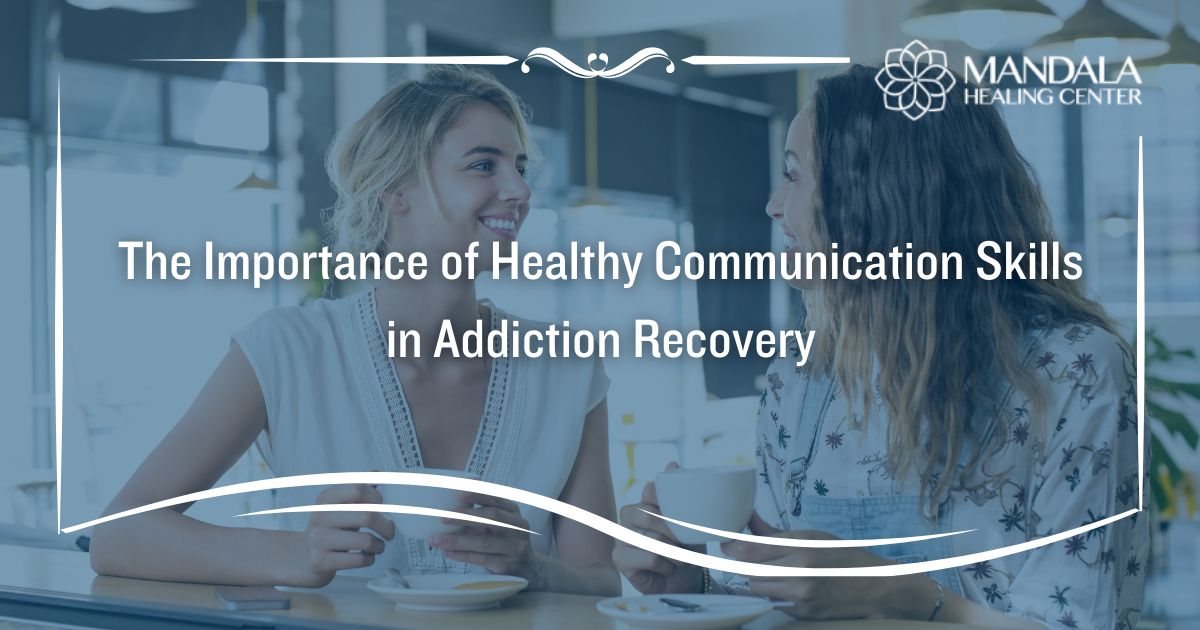When you suffer from addiction, you might struggle with communication skills. Abusing substances can alter brain chemistry, reduce empathy, affect your ability to regulate emotions, and lead to patterns of dishonesty or manipulation. These factors make it difficult to develop healthy communication patterns with others.
Once you get sober, you’ll have to work on improving your communication skills. Healthy communication skills can help you repair broken relationships with loved ones, build a network of support, and set important boundaries that keep you sober.
While learning new and healthier ways to communicate can seem difficult, there are ways to make the process easier. First, you could attend therapy sessions to strengthen skills like empathy, emotional regulation, and active listening. You can also practice by attending support groups and interacting with others frequently.
In this article, you will learn:
- Why communication skills are important in the recovery journey
- How having communication skills can help you set boundaries
- How to improve your communication skills in addiction recovery
The Importance of Healthy Communication Skills in Recovery
A study on communication among children found that poor communication skills were linked with greater emotional, behavioral, and social problems.[1] In other words, not having healthy communication tools can negatively impact your mental health. For this reason alone, you’ll need to work on your communication in recovery.
To be more specific, having healthy communication skills can equate to a successful recovery in the following ways:
Reconnecting With Loved Ones
When you have a history of substance abuse, you likely have a few relationships that have been damaged. Abusing drugs and alcohol can cause relationships to suffer due to behaviors like manipulation, lying, stealing, and poor emotional regulation during conflicts.
When you complete addiction treatment, you’ll probably feel a drive to fix these relationships. This means you’ll have to have important conversations with family members and friends about how to mend the issues between the two of you. These conversations can be highly emotional, making it vital that you have healthy, open, and honest communication skills to assist you.
Developing a Support Network
A part of the recovery process is building a support network that can uplift you during times of need. Many people choose to find their support network in groups like 12-step meetings. In 12-step programs, people in recovery can meet others to find a new group of people that they relate with and can receive support from.
When you are creating your support network, you’ll need to practice open communication with others. This could mean maintaining eye contact, having healthy body language, and being willing to open up about sensitive topics without experiencing intense emotions. While communicating effectively can be difficult, tools like therapy can help you develop the skills you need.
Setting Boundaries
When you are sober, it’s important that you set boundaries with family members and friends that will keep you safe and sane. For example, you might have friends who still partake in drinking. If you are planning on spending time with them, you should set a boundary that ensures they will not drink while they are around you.
To set healthy boundaries, you’ll need good communication skills. You want your boundary to come across as firm without causing the other party to become defensive or feel attacked. This can require a delicate balance of sticking to your needs while displaying compassionate and understanding language.
How to Develop Effective Communication in Addiction Recovery
If you are recovering from a substance use disorder, you’ll need to improve life skills like communication to be successful. Thankfully, there are a few ways to ensure your communication skills are up to par.
The first thing you should do is attend therapy. Therapists and mental health professionals are experienced in helping their clients learn how to engage in healthy communication. They might give you tools to regulate your emotions, engage in role-play to practice difficult conversations, or have you complete worksheets focused on improving communication.
Other tips for improving your communication skills include:
- Practice active listening by paying full attention to the speaker, asking questions, and displaying nonverbal cues that you are listening
- Use body language like eye contact, and open posture, and convey confidence or openness while speaking
- Express your thoughts clearly and directly without including unnecessary comments
- Tailor the style of communication to your audience
- Practice empathy by understanding the other person’s perspective and using the appropriate emotions in response
- Seek constructive criticism from others who might have ideas on how you can improve your communication skills
It is important to remember that developing good communication skills can take time. You won’t become a master communicator overnight. Instead, you must continue to hone your skills daily until you get the hang of it.
Get Connected to a Drug and Alcohol Rehab Program
If you or a loved one suffers from substance abuse, it’s time to seek help. At the Mandala Healing Center, we offer an individualized and evidence-based program, ensuring you get all of the tools and support you need to recover.
Contact us today for more information on our addiction treatment program.
References:












